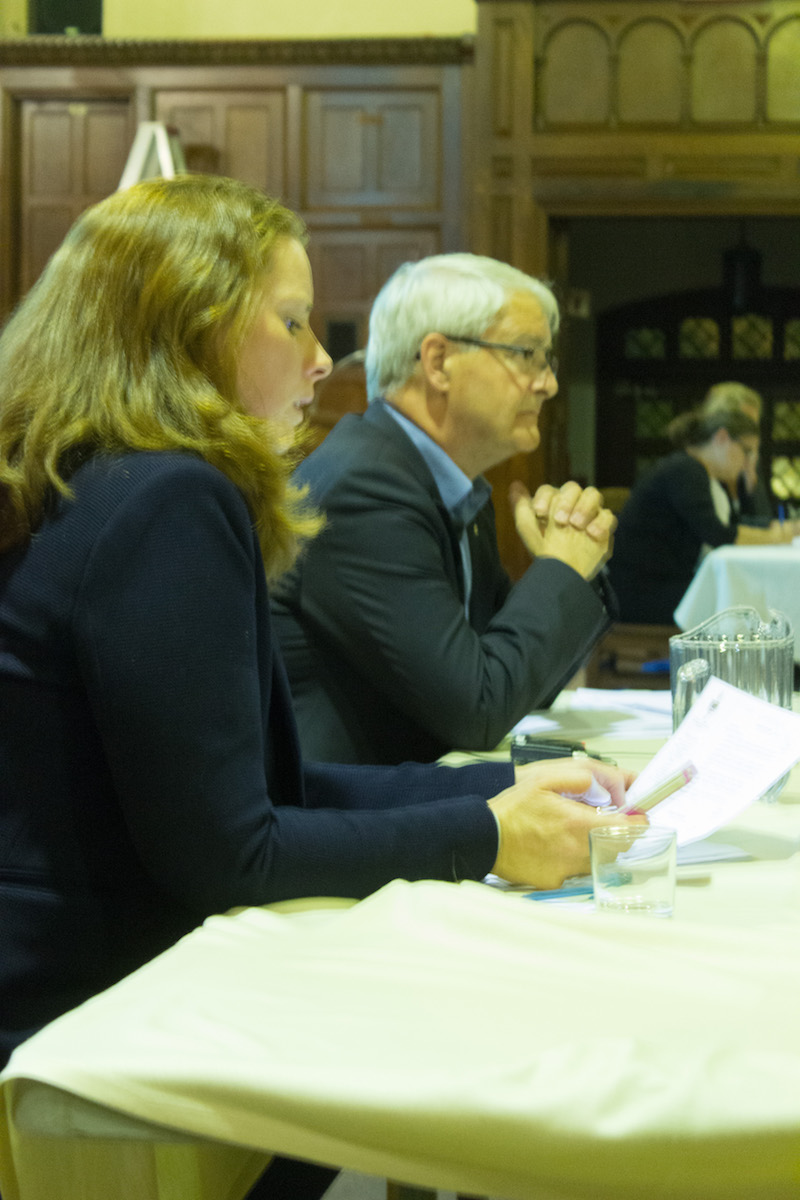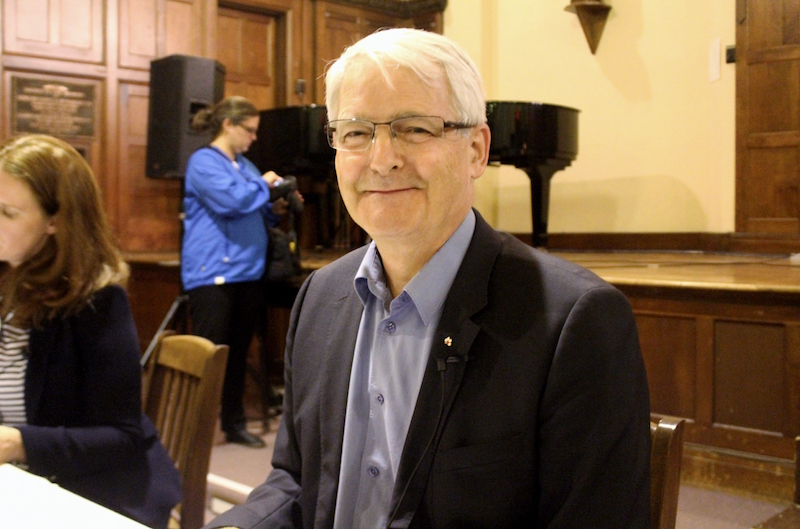Minister Marc Garneau meets with Montrealers to talk about the environment
Transport Minister Marc Garneau discussed climate change, while Montreal citizens voiced their concerns, at the Loyola chapel on Sept. 15. The conference started with a quick presentation regarding the federal government’s goals to prevent climate change from worsening.
“It is clear that it is a subject very dear to Canadians,” said Garneau. “Last December, our Prime Minister and Minister of the Environment were very much involved at the United Nations Climate Change Conference in Paris,” said Garneau, adding that it was at that moment “Canada took a serious engagement towards greenhouse gases.”

During the UN conference, according to The Globe and Mail, Canada had pledged to, by 2030, cut its emissions by 30 per cent from 2005 levels. Emission reduction goals set by the 1997 Kyoto Protocol were not met. On an international level, developed countries committed to spend at least $100 billion a year between 2020 and 2025 to help emerging economies deal with the effects of climate change. Finally, all countries were urged to save their remaining intact forests and leave fossil fuels in the ground.
Given that climate change is one of the greatest challenges humans face, Garneau said the Liberal government believes it’s time to build a strong, clean and sustainable economy for the sake of Canadians and the environment. According to the official Canadian government’s website on climate change, the country’s temperature has warmed up by 1.6 celsius in the last 50 years—double the global average—causing more extreme weather patterns and increasing snowfall in the northwest arctic, which puts many Canadians and indigenous communities at risk.
Garneau emphasized that taking on this challenge of creating a greener economy will require help from the entire Montreal community and the rest of Canada. He then presented Canada’s plan for dealing with climate change:
- Mitigation: How and where will we reduce these emissions?
- Innovation: Seeking ideas for new technologies and jobs
- Carbon pricing: A must-be-paid price for the right to emit the gas into the atmosphere
- Adaptation and resilience: A plan to prepare for any impact that climate change will have on Canadians and the rest of the world
The minister also presented a chart that broke down Canada’s greenhouse gas emissions across sectors: Oil and Gas (26 per cent), Electricity (11 per cent), Transport (23 per cent), Energy-Intensive, Trade Exposed (EITE) industries (10 per cent), Buildings (12 per cent), Agriculture (10 per cent), and Waste and others (7 per cent).
As his presentation came to an end, Garneau asked a few questions to the audience. For example, he asked: “What measures can individuals and governments take to reduce greenhouse gas emissions?” He also asked: “What are some ideas to promote innovation, new technologies and job creation aimed at reducing greenhouse gases?”
About 40 people stood up for their allotted two minutes to voice opinions and share their concerns. When Raphael Côté, a student from UQAM, took the microphone, he spoke about the pie chart breaking down Canada’s greenhouse gas emissions.
He explained how the majority of greenhouse gas emissions, including electricity, oil, gas, transport, EITE, buildings and water all come to a total of 90 per cent of the gas emissions. “The only vital need [for greenhouse gases] is [in] agriculture,” Côté said. “Would you be ready to attack the industries responsible for producing these greenhouse gases?”
Garneau answered by saying the government is working with the UN to reduce activities of industries that produce greenhouse gases.
Garneau invited those who hadn’t had a chance to speak to email him questions and suggestions. Similarly, Shane Johnston, a volunteer from Vrai-Plan Climat, was also a part of the event. Vrai-Plan Climat is a non-profit organization developed after Trudeau’s government’s new national climate strategy for Canada came out. They work to ensure no one is being left behind in this government plan.
Vrai Plan Climat believes that the following three principles should be at the center of the strategy: They want a plan that aligns with the science of climate change, a plan that builds 100 per cent renewable energy economy and a plan that is justice-based.
On Thursday night, Johnston was collecting emails to stay connected with audience members, so the organization can plan different events related to implementing the three goals Vrai-Plan climat has for the government’s plan. She added that it is extremely important that the Montreal community works together at a time when the environment is so fragile.




